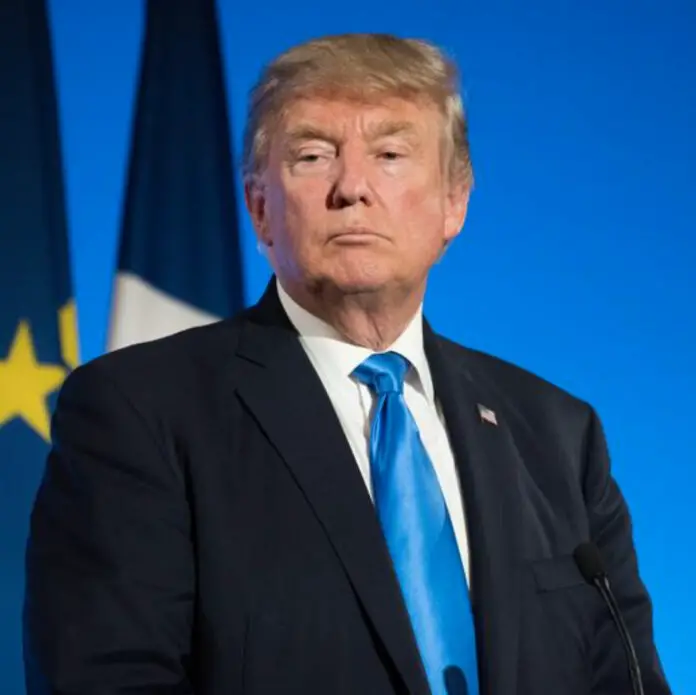President Donald Trump doubled down on controversial comments about dictatorship during his Oval Office remarks on Monday, August 25, claiming that many Americans might prefer authoritarian rule while simultaneously denying he seeks such power himself.
Speaking to reporters while signing executive orders, Trump addressed criticism of his military crackdown in Washington, D.C., where he deployed National Guard troops despite declining crime rates in the nation’s capital. The president suggested that critics who label him a dictator may be missing public sentiment.
“A lot of people are saying maybe we’d like a dictator,” Trump asserted during the Monday session, before immediately claiming he does not want such power. He repeated similar themes during a Cabinet meeting on Tuesday, August 26, stating that people tell him they would rather have a dictator if it means stopping crime.
The president’s remarks came as he threatened to expand military deployments to Democratic-controlled cities, including Chicago, Baltimore, San Francisco, and New York City. Trump specifically targeted Chicago, calling it a “killing field” and suggesting federal intervention despite objections from state and local officials.
Illinois Governor J.B. Pritzker rejected Trump’s threats during a news conference, describing the proposed federal takeover as unprecedented, unwarranted, illegal, unconstitutional, and un-American. Chicago Mayor Brandon Johnson echoed these concerns, warning that deploying National Guard troops could inflame tensions between residents and law enforcement.
The controversy intensified over the Labor Day weekend when at least 53 people were shot in Chicago, with seven fatalities recorded across 31 separate shooting incidents between Friday night and Monday morning. The violence included a drive-by shooting in the Bronzeville neighborhood on Saturday night that wounded seven people, occurring just hours after Trump posted threats against Governor Pritzker on social media.
Johnson responded to the federal threats by signing the “Protecting Chicago Initiative” executive order on Saturday, August 30, describing it as the most comprehensive campaign by any city to protect itself from what he termed an out-of-control federal administration. The mayor indicated his office had received credible reports suggesting militarized federal activity could occur within days, not weeks.
Political scientists and democracy experts expressed alarm at Trump’s comments about Americans wanting a dictator. Princeton University professor Kim Lane Scheppele, who has studied autocracies in Hungary and Russia, indicated she now considers the United States to have entered full authoritarian mode. Harvard University political scientist Steven Levitsky noted that claiming people want a dictator represents a classic authoritarian talking point used by leaders worldwide.
Polling data suggests Trump’s assessment may reflect sentiment among his supporters. A University of Massachusetts Amherst survey found that 74 percent of Republicans endorsed Trump’s previous joke about being a dictator for one day. Additional polling showed 59 percent of Republicans believe many problems could be better solved if Trump did not have to worry about Congress and the courts.
The president’s authoritarian rhetoric coincided with broader efforts to expand executive power. Trump has signed multiple executive orders that legal experts consider unconstitutional, including directives on state election management and flag desecration penalties. The Justice Department has launched investigations into Democratic critics, including New York Attorney General Letitia James and Senator Adam Schiff.
Former Trump administration officials have previously warned about the president’s authoritarian tendencies. John Kelly, who served as both Homeland Security secretary and White House chief of staff during Trump’s first term, stated ahead of the 2024 election that Trump “certainly prefers the dictator approach to government.” Kelly described Trump’s governing style as matching characteristics of fascism, including dictatorial leadership and forcible suppression of opposition.
The president’s comments also came amid broader efforts to reshape American elections. Trump has announced plans to issue an executive order requiring voter identification for all elections nationwide and to eliminate mail-in voting except for military personnel and those who are very ill. These proposals face significant legal challenges, as election administration remains primarily under state jurisdiction.
Current federal deployment in Washington includes armed soldiers and military vehicles patrolling city streets, which Trump justified despite available evidence showing the deployment was unnecessary for crime control. The administration has indicated the military presence may extend beyond the initial 30-day period.

